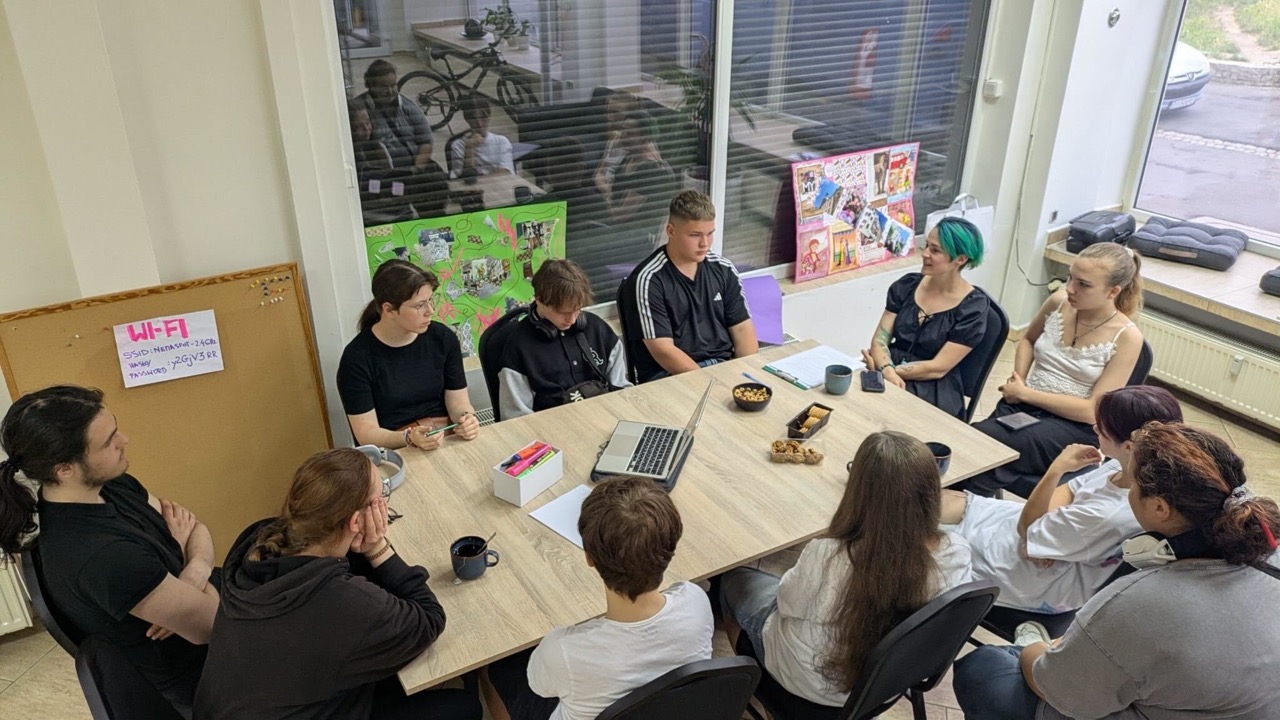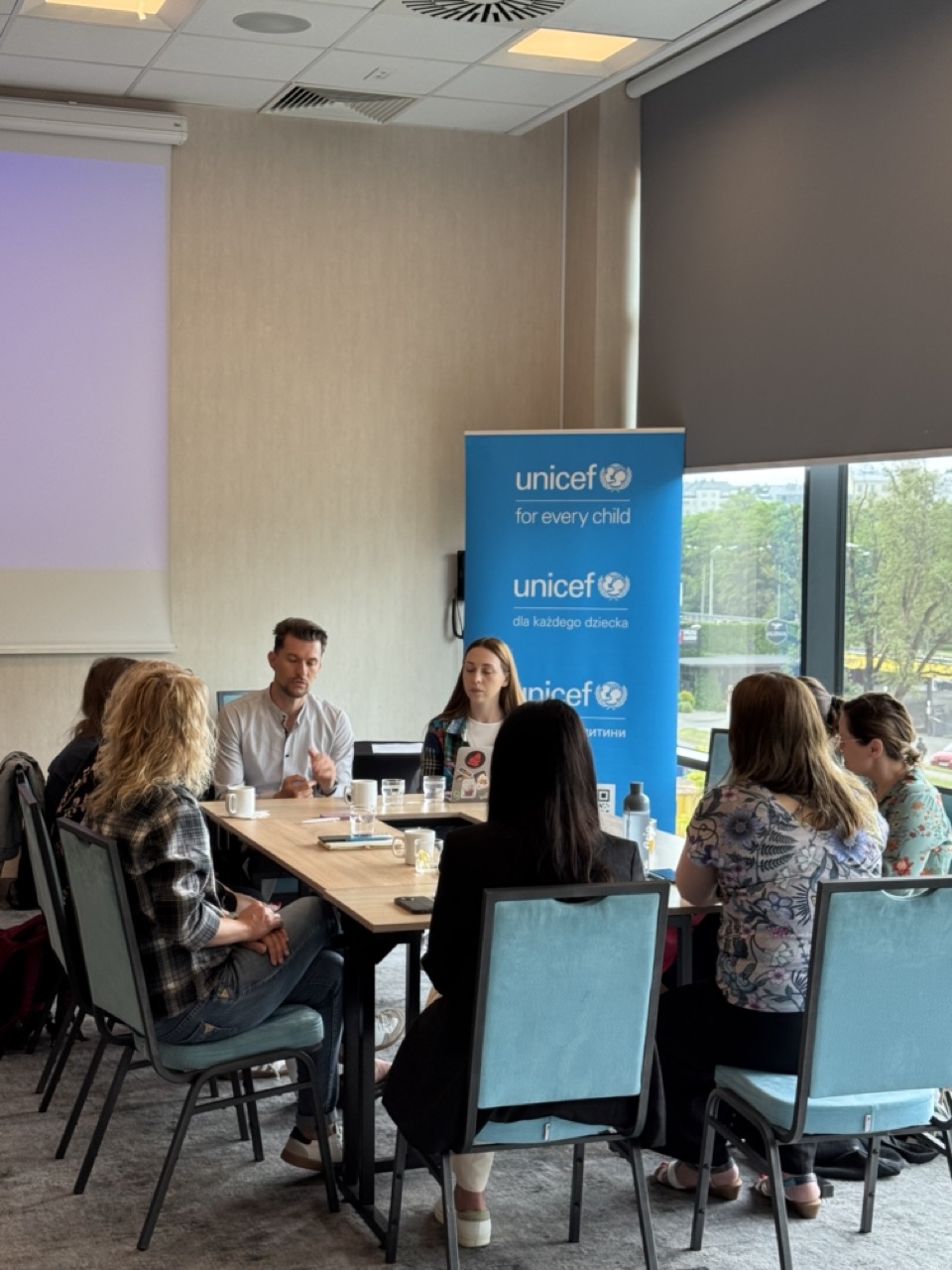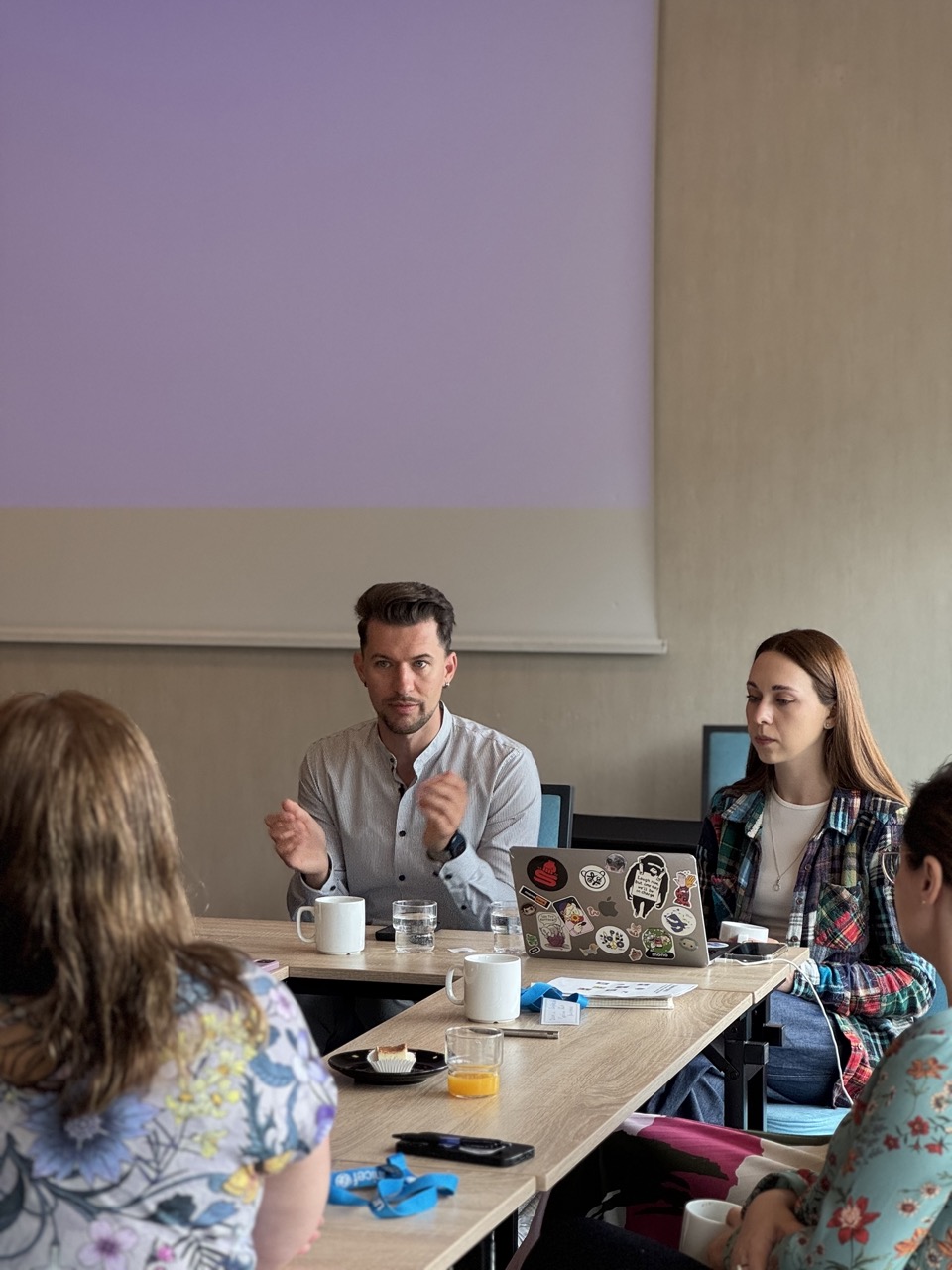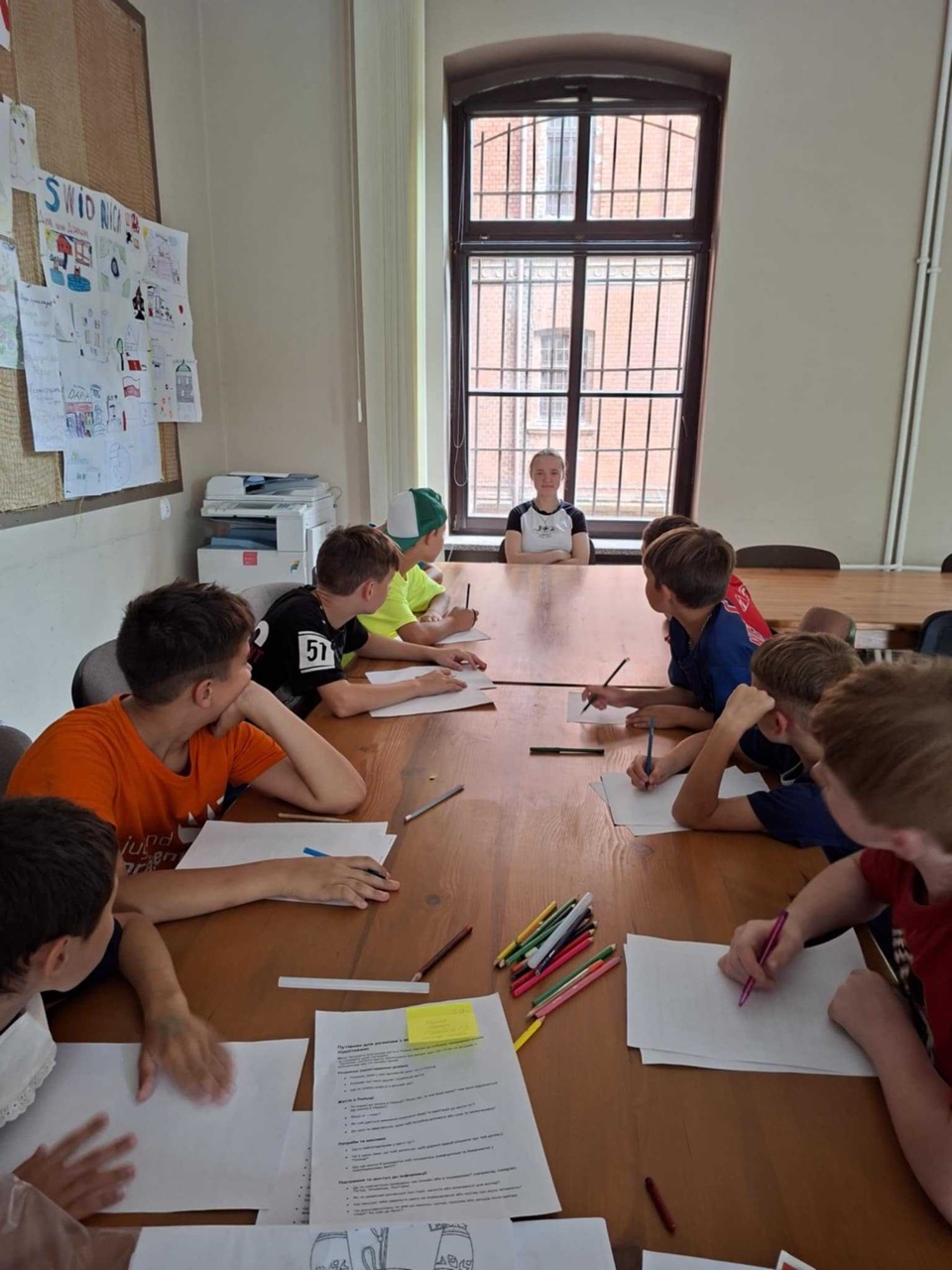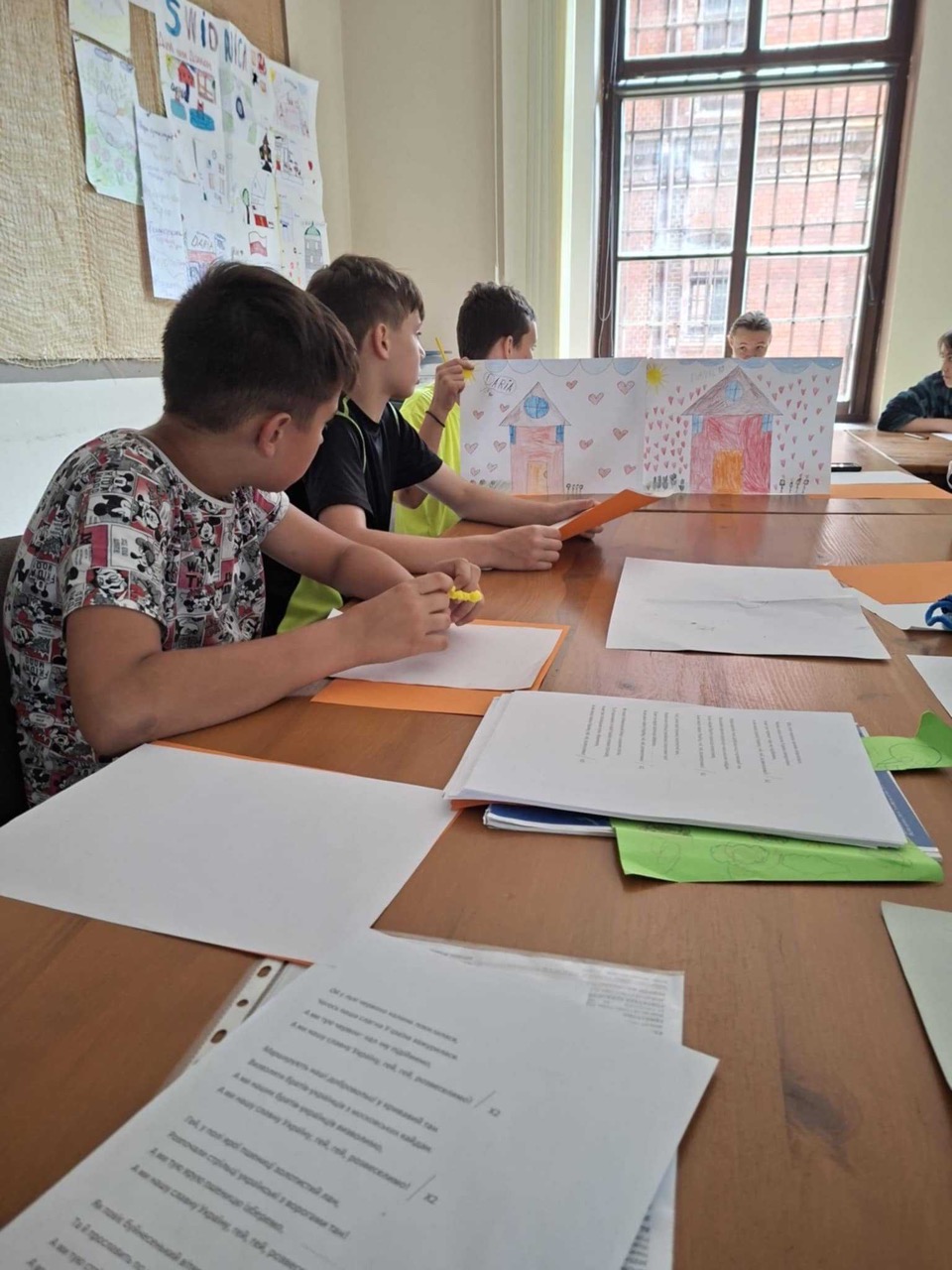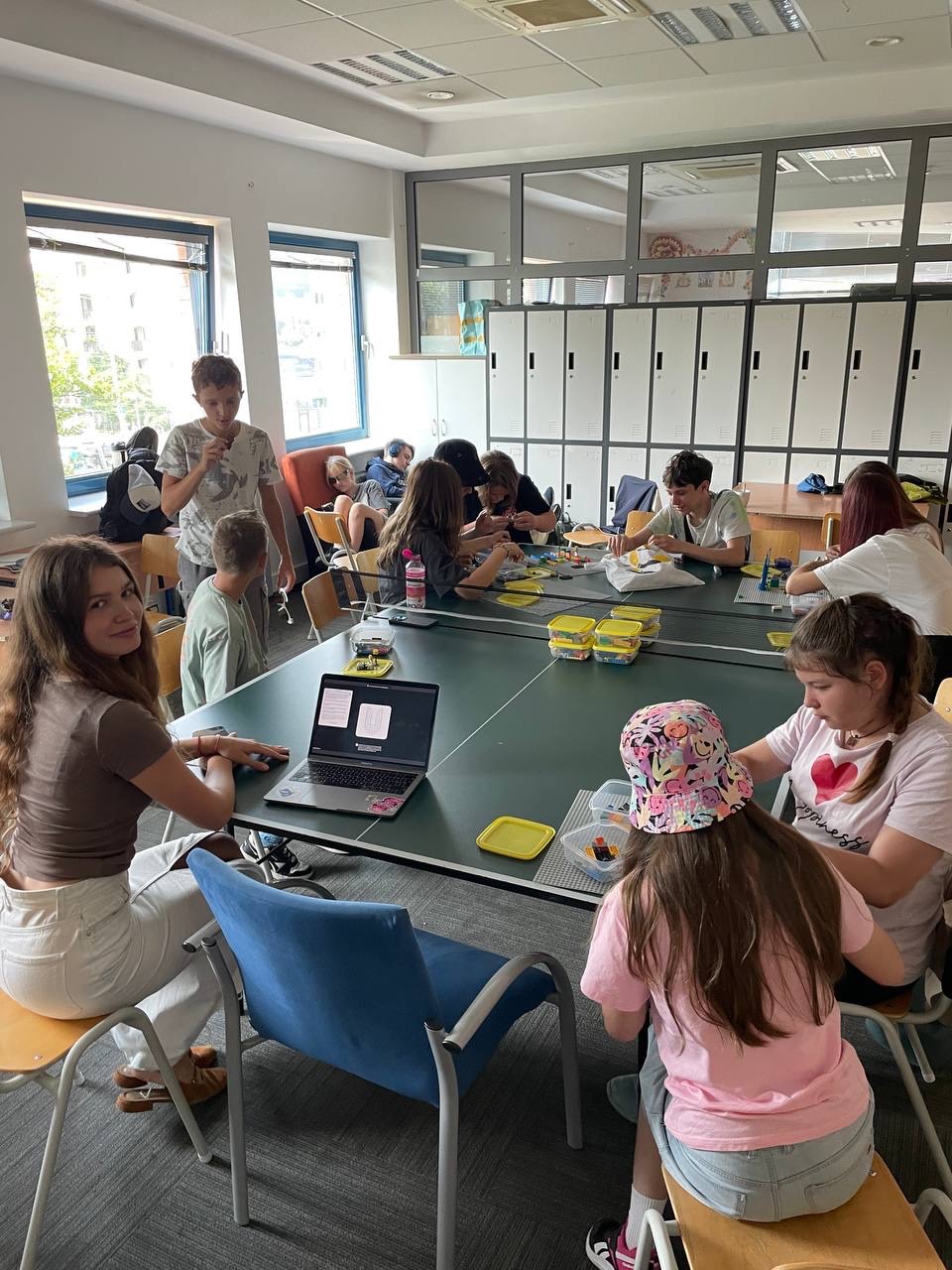Ukrainian adolescents who have found themselves in Poland due to the war face a range of daily challenges — from emotional adaptation and education in a new environment to seeking support in a society that often feels unfamiliar and difficult to navigate. For support to be effective, it is crucial not to impose ready-made solutions “from above” but to listen to the adolescents themselves, their parents, and the professionals who work alongside them. That is why, in this project, we apply the Human-Centered Design approach, which makes it possible to create support tools in close cooperation with those for whom they are intended, ensuring they are as sensitive as possible to the real needs of children and young people.
Project goal:
The project aims to build a deep and empathetic understanding of the needs and challenges faced by Ukrainian adolescents who have been displaced to Poland by the war, and to turn this knowledge into practical support tools for professionals working with children and youth. Using the Human-Centered Design approach, we seek not only to explore the experiences of children, their parents, and specialists but also to translate these insights into a tailored training program. This program will help professionals provide adolescents with not formal but genuinely sensitive and adequate support — taking into account their emotional state, cultural background, and everyday challenges. The final stage of the project will be a series of practical trainings in different cities across Poland, enabling around 200 specialists to gain new knowledge and apply it in their daily work with young people.
Key objectives:
- Research the everyday experiences, emotional state, and core needs of Ukrainian adolescents, their parents, and specialists.
- Translate the obtained insights into a tailored training program with Human-Centered Design elements.
- Provide training for about 200 professionals in 7 cities in Poland through a series of practical workshops.
- Strengthen the capacity of specialists to provide children with sensitive, culturally appropriate, and effective support.
- Develop recommendations for further development and scaling of the program.
To achieve the set goals, the project foresees a series of sequential steps that include both researching the needs of adolescents and creating practical support tools, as well as implementing them in the work of professionals.
Main project activities include:
Research phase
- Conducting focus groups with adolescents in two age categories (10–15 and 16–19 years) in large cities and small towns.
- Individual interviews with parents, caregivers, staff of UNICEF “Spilno Hubs” support centers, community centers, and social workers.
- Analysis of the collected data to identify key needs and opportunities for improving youth support.
Development of the training program
- Creation of special materials based on the research.
- Content validation with UNICEF experts, local partners, and youth work professionals.
- Preparation of trainers and logistics (venues, participants, safety, etc.).
Training delivery
- 10 trainings in 7 different locations in Poland.
- Participation of about 200 specialists (20 people per session).
- Sessions will be conducted in Ukrainian and Polish, in the format of one-day, in-person events with practical exercises.
- Collection of feedback and participants’ emotional impressions.
Final stage
Preparation of a final report with results, conclusions, and recommendations for further development and scaling of the program.
Expected results:
The project will contribute to creating a more inclusive and sensitive environment for Ukrainian children and adolescents in Poland. By training specialists, the quality of support provided to young people in schools, communities, and social centers will improve, helping them to integrate more effectively, reduce stress, and feel safer. In the broader perspective, the project will strengthen intercultural dialogue, foster solidarity between communities, and contribute to more stable development of both the Ukrainian community and Polish society as a whole.
The project is implemented with the support of UNICEF in partnership with the Foundation Ukraine and other organizations working with Ukrainian families in Poland.


